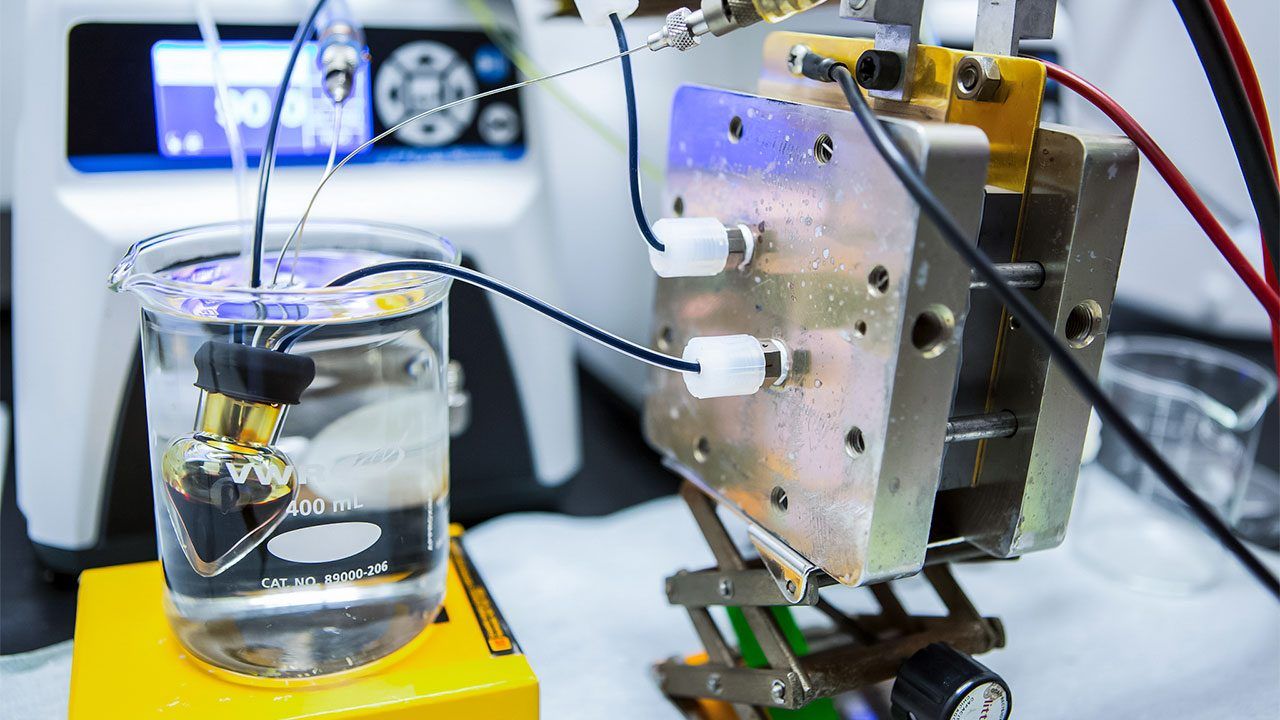A team of University of Toronto chemists has created a battery that stores energy in a biologically-derived unit, paving the way for cheaper consumer electronics that are easier on the environment.
The battery is similar to many commercially-available high-energy lithium-ion batteries with one important difference. It uses flavin from vitamin B2 as the cathode: the part that stores the electricity that is released when connected to a device.
“We’ve been looking to nature for a while to find complex molecules for use in a number of consumer electronics applications,” says Dwight Seferos, an associate professor in U of T’s department of chemistry and Canada Research Chair in Polymer Nanotechnology.
Read more
